Hurting Daytona Beach businesses glad to see thousands gather for Bike Week
Bike Week is estimated to generate $75 million for Daytona Beach.
About 300,000 people are expected in Florida this week for Daytona Beach's "Bike Week" motorcycle rally -- and local businesses, hurting during the COVID-19 pandemic, are glad to see visitors flooding in, despite potential for a surge in cases.
Bike Week lasts from March 5 to March 14. The event is estimated to generate $75 million for Daytona Beach, according to the city's Chamber of Commerce, though events are now spread across north and central Florida.
Most years, about 400,000 to 500,000 people attend, but this year a "reasonable estimate would be around 300,000 +," Janet Kersey, executive vice president and chief operating officer at Daytona Regional Chamber of Commerce, told ABC News via email Monday.
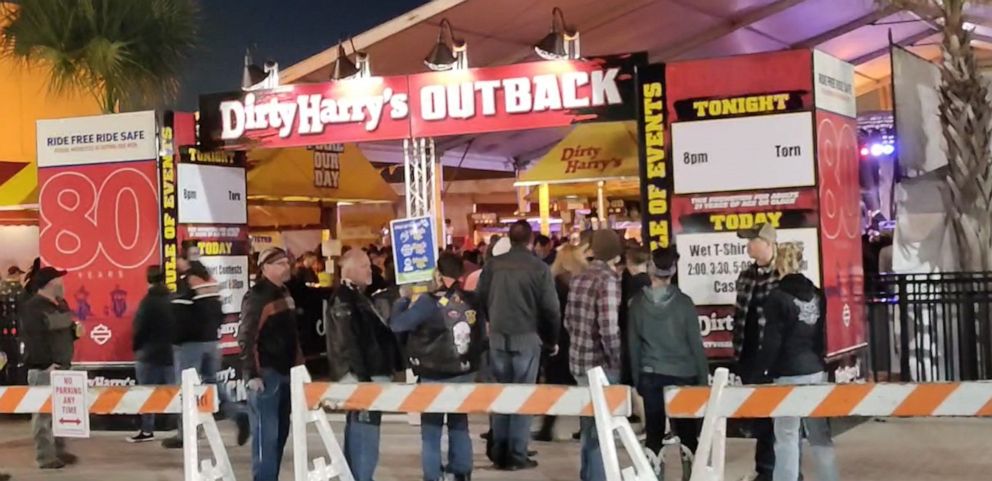
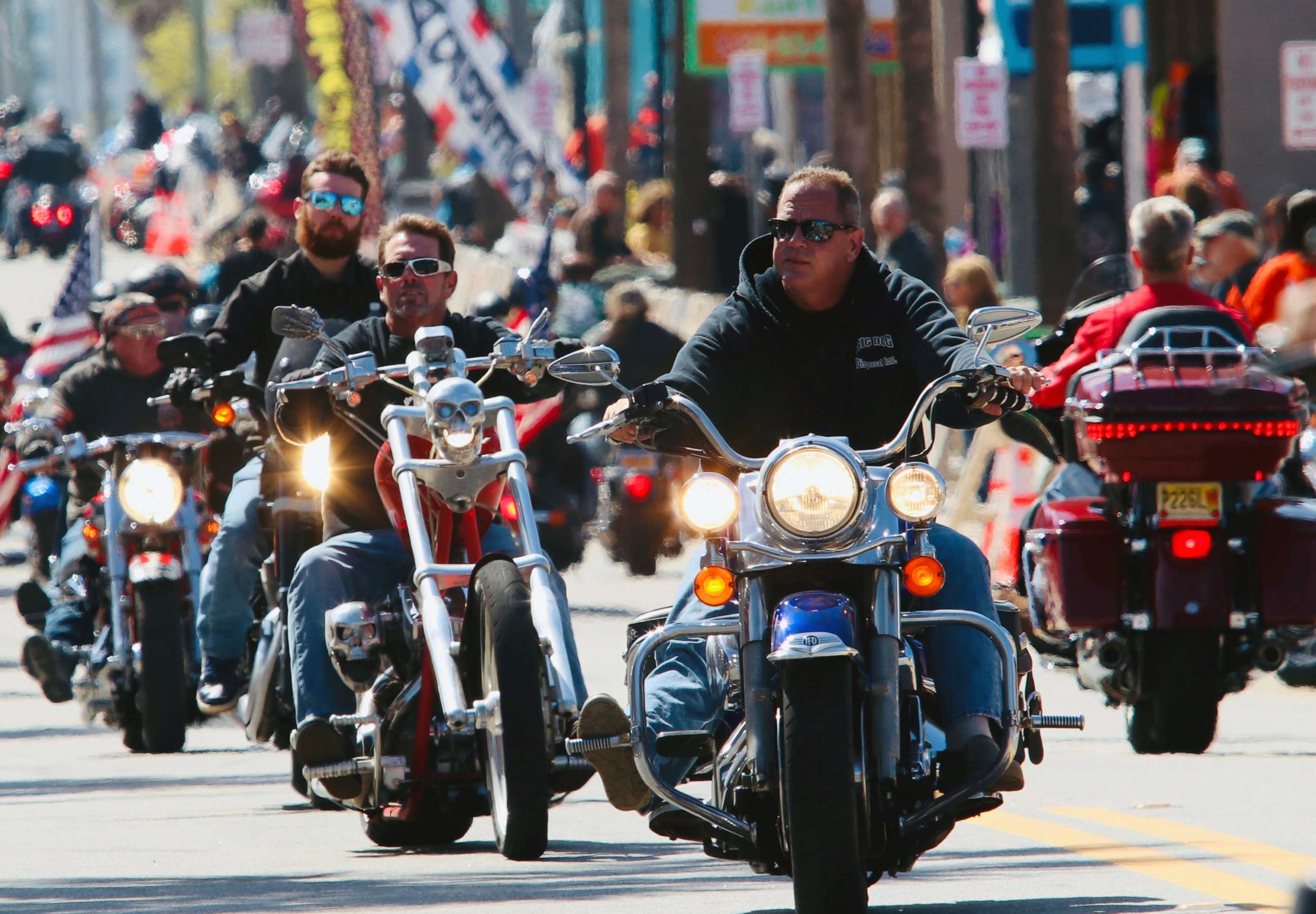
For one restaurant along Daytona Beach's Main Street, Cruisin Cafe, business has already doubled this week, hostess Teresa Herzberg told ABC News on Tuesday.
Herzberg said she had been a little concerned that the pandemic would've canceled or shrunk the rally, but she said, "the crowds came out and we're pleased."
"We're having a great time," she said.
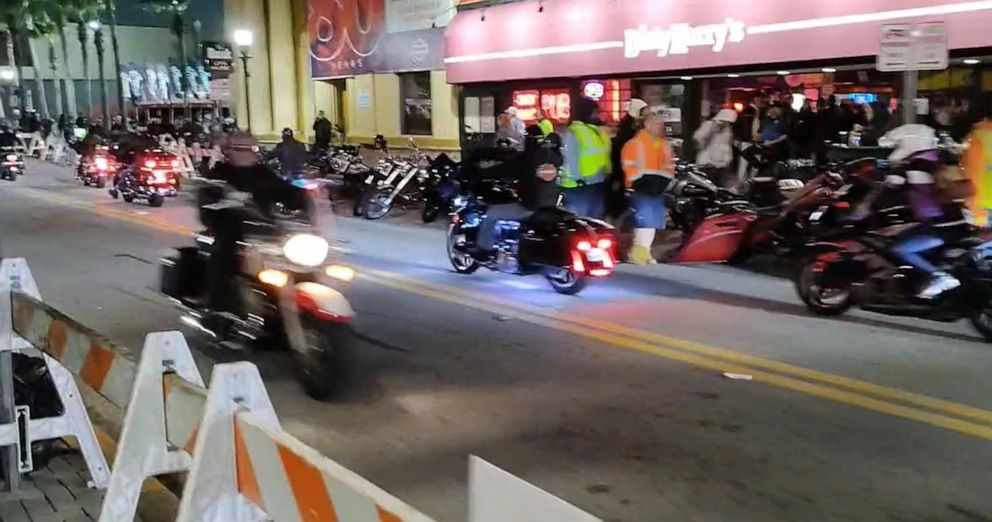
Kevin, an employee at Zeno's Boardwalk Sweet Shop along Daytona Beach, is also relieved Bike Week returned because "business is always better when we have big events like this."
Kevin said he thinks Daytona Beach officials made the right decision to bring the rally back because "businesses are hurting."
"They shut us down for a couple months in the beginning [of the pandemic.] Everyone's just trying to make a living so I definitely think they did make the right call," Kevin said.
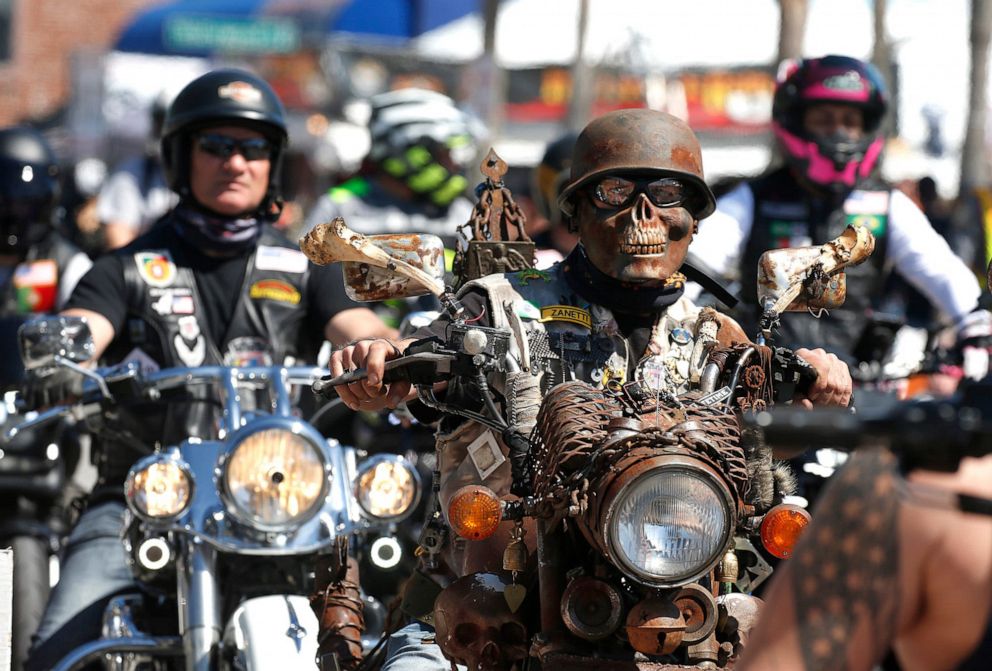
When it comes to COVID-19 spread, he says, "As long as everybody follows the guidelines that were set for us, I think it'll be OK."
The sweet shop requires masks for all customers and employees, he said.
Due to COVID-19, Kersey said "there was much discussion" about canceling Bike Week, but she said the city council "was very meticulous in its decision to move forward."
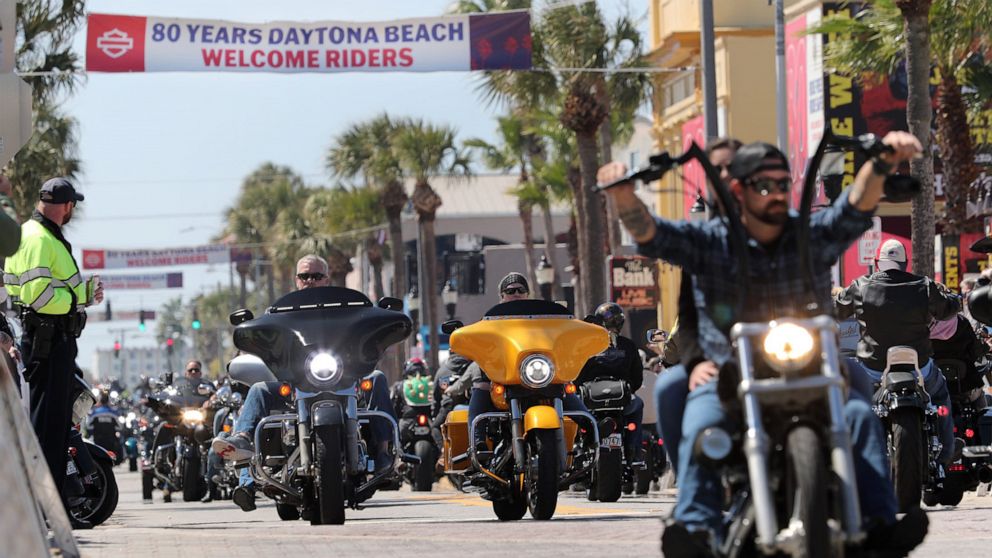
Last summer, dozens of COVID-19 cases were linked to the Sturgis Motorcycle Rally in South Dakota, which attracted about 460,000 people.
Kersey said detailed safety plans were created for businesses and hotels.
Changes this year include limiting some businesses to 60% indoor capacity, Daytona Beach officials said.
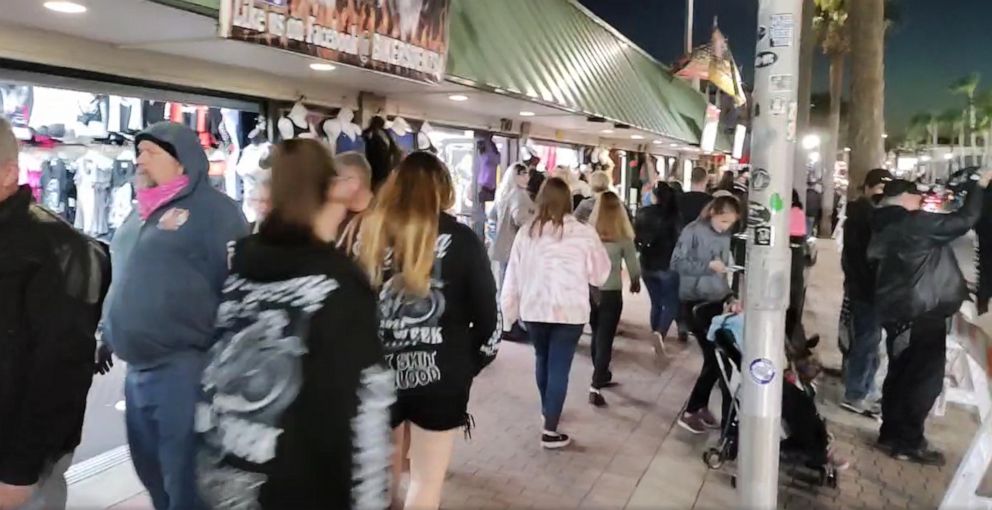
"Residents and visitors should wear face coverings when indoors and physical distancing is not possible," city officials said, adding that businesses will follow distancing and mask guidance from the Centers for Disease Control and Prevention.
But at Daytona Beach's Salty Dog Surf Shop, masks have not been enforced since the summer, sales associate Samantha Schmid said.
Florida does not have a statewide mask mandate.
Schmid said she's very happy to see Bike Week continue this year.
Although a surge in COVID-19 is "definitely a concern," she added, "I feel like the majority of the people have had it [COVID-19], gotten it over with."
"COVID cases might spike but I feel like at this point we've been dealing with it for so long ... everyone's ... ready to move on," Schmid said.
According to the CDC, "cases of reinfection of COVID-19 have been reported but are rare." The public health institute also noted, "Based on what we know from similar viruses, some reinfections are expected,"
As the pandemic reaches the one-year mark, Dr. Anthony Fauci on Monday stressed, "Now is no time to declare victory because we still have a considerable amount of viral dynamics that we're dealing with."
"You are by no means out of the woods and you've got to continue to do the type of public health measures that we talked about all the time: the masking, the physical distancing and the avoidance of congregate settings, particularly indoors," Fauci said at the National League of Cities Congressional City Conference.




